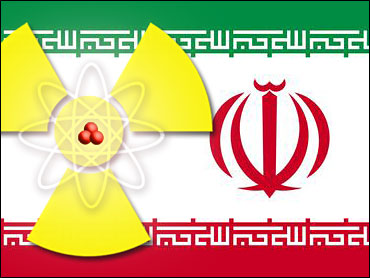IN THE MEDIA
Flawed pact leaves Iran free to build a nuclear arsenal
November 29, 2013 | Ahron Shapiro

Ahron Shapiro
The Age – November 29, 2013
US Secretary of State John Kerry has touted the interim agreement over Iran’s illegal nuclear program as an achievement that makes the Middle East region safer. If only it were so.
In reality, this dangerously flawed pact normalises relations with a rogue regime, reverses the momentum of years of sanctions and leaves Iran, in six months’ time, closer to building nuclear weapons than it is today.
In effect, the P5+1 nations (the US, Britain, France, Russia and China, plus Germany) traded immediate sanctions relief worth billions of dollars for the promise of a temporary freeze of certain aspects of Iran’s nuclear program. The deal requires none of Iran’s nuclear infrastructure to be dismantled and will have almost no effect on Iran’s nuclear capability. Every Iranian concession in the agreement can be easily reversed when politically convenient.
The most dangerous part of the agreement is it recognises Iran’s uranium enrichment program, both in the interim period and as one of the elements of any final agreement. This capitulation erases the achievements of six United Nations Security Council resolutions that call upon Iran to halt all enrichment, and will not only make it vastly easier for Iran to hide nuclear weapons development from inspectors under the cover of permissible activity but also sets a precedent that will impact nuclear proliferation globally.
Iran’s claim that the Non-Proliferation Treaty guarantees the right of its signatories to enrich uranium is untrue – it only backs the right of countries to operate civilian nuclear facilities for peaceful purposes. While the US insists the interim deal does not imply a “right” to enrich uranium, Iran says it does. The agreement’s ambiguity does not serve the interests of the international community, which cannot be expected to police an Iranian enrichment program in perpetuity when the raison d’etre for enrichment is to provide the foundation for nuclear weapons.
Iran’s insistence on enriching uranium has always undermined its claim that its nuclear program is a peaceful one. Reactor fuel – which Iran has refused to accept from outside parties – is all that is necessary for peaceful applications but is useless in a nuclear weapon. On the other hand, plutonium or highly enriched uranium is absolutely essential for nuclear weapons production.
Iran’s nuclear program is designed to produce both, and the infrastructure for neither is rolled back in this agreement.
The interim agreement pauses but does not otherwise limit Iran’s heavy water reactor in Arak, a facility that could produce military grade plutonium.
And while the agreement would neutralise Iran’s stockpile of 20 per cent enriched uranium and limit low-level enrichment, these concessions are meaningless so long as Iran is allowed to keep its 19,000 centrifuges.
Iran currently has more than eight tonnes of low-level enriched uranium. This is enough to produce at least four bombs of the size that was dropped on Hiroshima. The centrifuges Iran is allowed to keep are capable of converting this stockpile to military grade in quantities sufficient to produce a nuclear bomb in a matter of weeks, according to a recent report by the US Institute for Science and International Security.
The interim agreement is also worryingly silent on the issue of warhead and ballistic missile development. Iran is therefore free to use the next six months to perfect its nuclear warhead and deployment technology in places such as its Parchin facility, where it is believed to be testing implosion triggers.
The interim deal – designed to be extended indefinitely – puts the West on track to repeat the errors of diplomacy used against North Korea. There, too, sanctions relief was used as an incentive for interim deals that were flouted time and again.
Those deals, like this one, left North Korea in the position of a nuclear threshold state and failed to deprive it of the tools to go further. Instead of improving the chance for a permanent end to Iran’s nuclear program, this deal has apparently worsened it. The challenge now is finding a way to peacefully end Iran’s nuclear weapon ambitions in spite of last weekend’s agreement, and not because of it.
Ahron Shapiro is a policy analyst for the Australia/Israel & Jewish Affairs Council.
Tags: International Security





